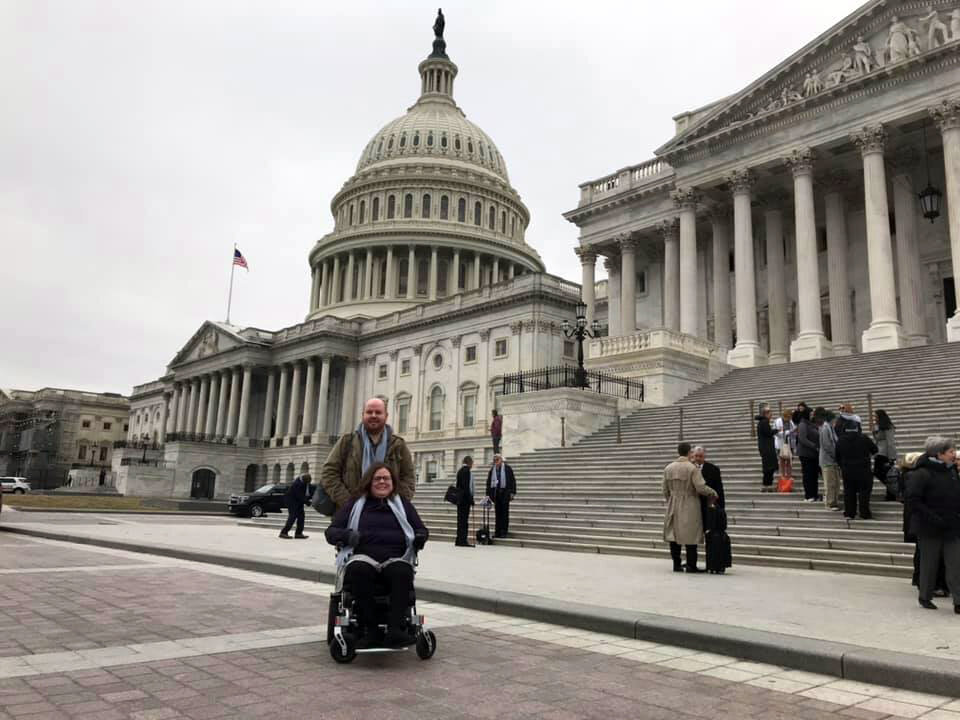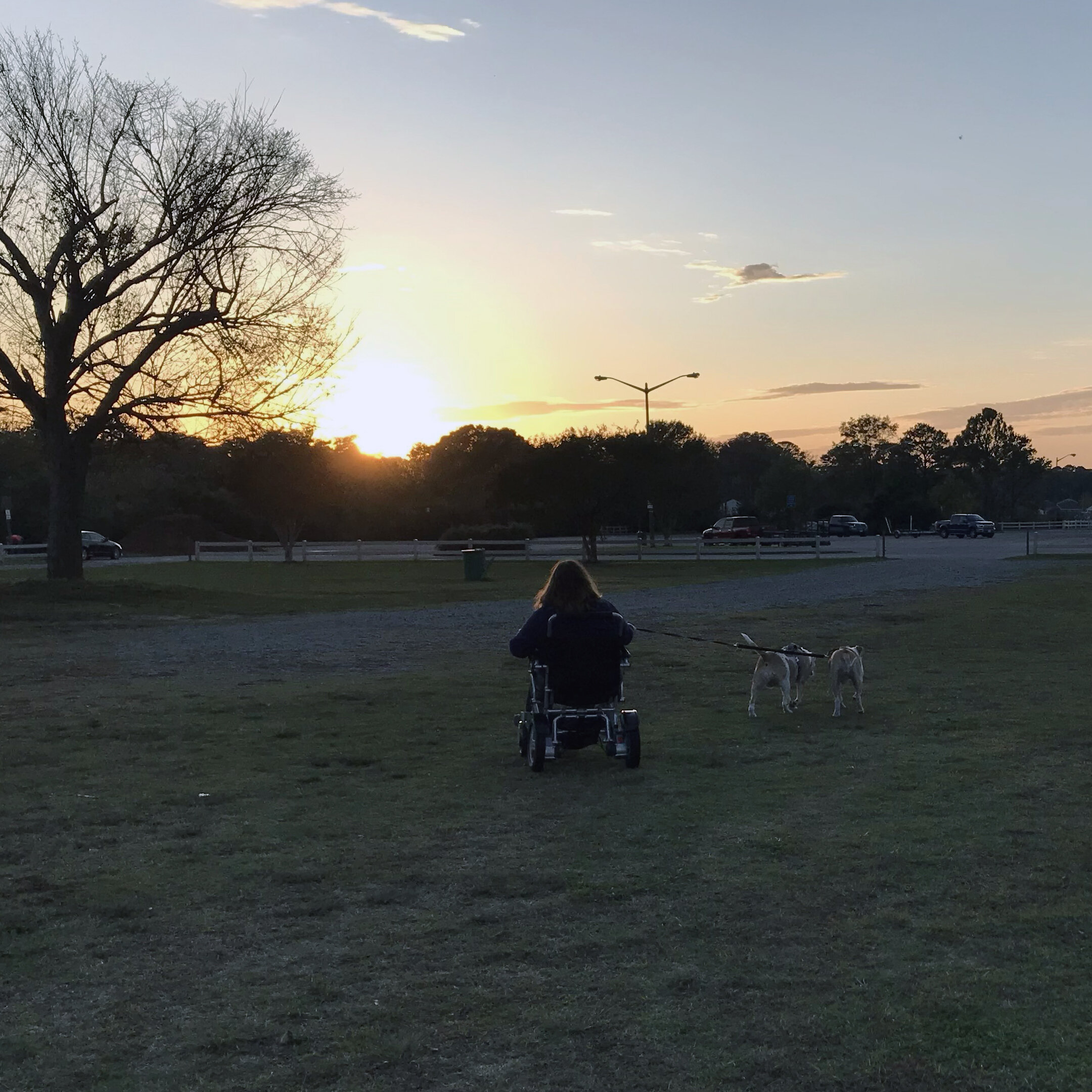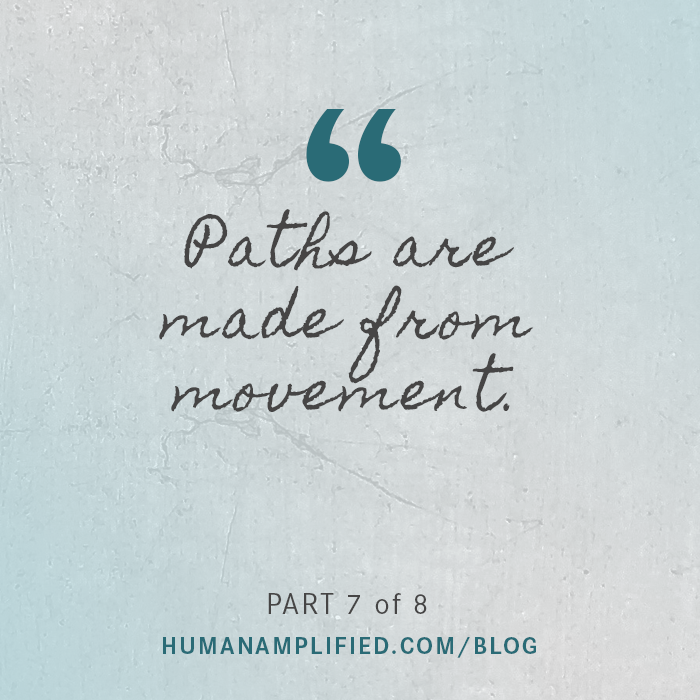What My Journey To A Rare Disease Diagnosis Taught Me About Acceptance
Article 7 of 8
by Tiffanny Thomason, Guest Writer
Tiffanny’s journey to acceptance was windy, sometimes painful, sometimes joyful, and most definitely had twists and turns no one could have expected. And, the journey is still ongoing! Tiffanny exposes parts of her soul to us through her physical journey of being human, including lessons on acceptance for us all. My favorite lesson is that accepting your own truth and amplifying your voice is monumental to your well-being. - Brandi
I was 25 years old, finishing a Master’s degree program, and eager to begin my career. I was still brandishing the go-getter attitude and trying to make my way to the top. Where there was a will, there was a way, and nothing was about to stop me. Or so I thought.
One day, I can recall my legs feeling so weak that I didn't have the physical strength to get up off the toilet. My quads no longer had the strength to carry me. Little did I know, that evening would begin my 75 day experience between three different hospitals and a nursing home.
I had struggled with a large host of issues for about six years leading up to this day, largely beginning as common GI complaints. I would discuss my concerns with different physicians, but I was often told that I just needed to lose weight, get some more exercise, and consider some of my hormonal irregularities. I went with what I was being told by these doctors, even though I didn’t totally agree.
a failing diagnosis
I continued to press onward, even though it meant I had to withdraw from several courses or take an incomplete. Somehow, I kept my GPA up and made it through my academic career in spite of these difficulties. I knew something was wrong but trusted that medical professionals knew best.
The GI issues, which began in 2006, turned into a laundry list of other symptoms by the time October 2012 rolled around. That’s when I found myself lying in a hospital bed, unable to stand on my own two feet, feeling completely helpless.
The physicians responsible for my care told me that my state was likely due from the stress of my graduate program. Before you knew it, I was being evaluated by the Neuro-Psych department, not once, not twice, but at least three times. Once all basic routine tests yielded fairly “normal” results, I was diagnosed (incorrectly) with conversion disorder.
I can recall being so angry, quite furious actually, to the point I was raising my voice to doctors and social workers and being brought to tears. Of course, this was damning for me because it made me seem emotionally unstable and only gave them more ground to support a psychiatric diagnosis.
Every day felt the same — I remember lying there trying to drown out the beeping sounds of hospital machines and negative opinions.
Once given a psychiatric diagnosis, it was as if doctors had given up. Even my own family became more distant and told me things like, “The doctors know what they’re talking about, Tiffanny.” I literally felt alone and helpless.
Sparking the Will to Go On
Ever since I was a young girl, music has always been therapy for me and proved to be even more so during the diagnosis time. Kelly Clarkson had just released her Stronger album the year prior, and I remember lying in my hospital bed listening to her track, “The Sun Will Rise,” and “Through The Rain” by Mariah Carey on repeat.
These lyrics meant so much to me. They spoke to me, they moved me, and brought me to find my own inner strength, my own peace, and my own level of acceptance.
Surrounded by people who were more than three times my age and preparing for their end of life experiences, I knew there was no way I could let this become my reality. There was no way I could continue to sit, waste away, and succumb after all I had overcome from a very young age.
A big breakthrough in my level of acceptance came from inside four walls in a nursing home - a moment when I realized that if I was going to make it through the rain and see the sunrise each day, it meant I was going to have to take ownership.
I could no longer have my fate be in the hands of those who were okay with just watching a 26-year-old waste away in a nursing home.
Accepting life over death
I had to accept that it wasn’t my job to force people to listen and understand me; it was my job to take responsibility for my health and well-being, even if that meant standing alone, losing relationships, and being told I was crazy.
On December 21, 2012, I signed myself out of the nursing home, and by the first week in January, I had begun plotting and executing plans to try to get myself the help I so desperately needed. I was beyond determined and spent morning, noon, and night sifting through historical medical records and putting them together into a very thorough presentation for prospective specialists to see.
Why did I go through all that, you ask? Well, because doing things a traditional way wasn’t working. It was time to take matters into my own hands and start taking some action.
Many of us, when confronted with challenge, waste our time waiting for the ideal path to appear. We patiently wait, and some of us pray for answers. But answers never come. I had already waited long enough and realized that paths are made from movement, not waiting.
Acceptance of my life meant that I wasn’t going to stop at, “You can live a perfectly productive life from a wheelchair.”
Rather, it was going to be my responsibility to prove to those physicians that just because I could live a productive life in my situation doesn’t mean I should have to. It meant that I didn’t stop each time someone told me that nothing was wrong and I just had to eat better.
Related: 6 Helpful Habits to Find Your Purpose
I wrote dozens of emails, made several dozen phone calls, and continued to see local physicians. I didn’t stop until the nonsense stopped.
The Big Trip
Oftentimes, as humans, we expect answers to be right there in front of us. We assume that the experts know best, and we believe everything science immediately tells us.
I had to accept that this was not always true and that it was perfectly acceptable for me to reach far and wide.
My reach lead me to Nashville, Tennessee, where I was not only properly diagnosed with a rare Neuroendocrine Cancer syndrome (Carcinoid), but also where my journey of life acceptance continued to grow.
Related: A Journey with Cushing’s Disease, Part 2 - Career Impact, Diagnosis, and Caretaking in a Romance
following the right path
Back then, I had no idea that my health journey would become such an integral part of my life - taking me in a winding path to where I am today. I assumed that it was a phase, and my life would resume as I had planned it to be for my 26 year old self. I would have never thought in a million years that my life would change forever.
When I found doctors, around the United States, who were interested and willing to listen to what I had to say, it was if I had won the lottery.
I can recall feeling such a release when I began getting answers. It was like a huge weight had been lifted off of me.
But, to this day, I really wish I didn't have to endure some of the emotional mistreatment and that there wasn’t such a disconnect in diagnosing rare diseases.
Even though I’ve accepted how my life changed from what I had planned, I haven’t accepted that the processes around diagnosing rare disease has to remain status quo. I was never thrilled about all the effort I had to put into making a correct diagnosis happen.
However, all the effort is a huge part of who I have become today.
How Acceptance Evolves
When you are diagnosed with a rare disease, your levels of acceptance continually evolve, and they don’t stop at diagnosis.
Even after diagnosis, you are often confronted with challenges that most know nothing about. When you think you have a better understanding of how to cope and address some of these challenges, just wait around a few minutes, days, or weeks; chances are, what you thought you had a handle on, you don’t.
Once I thought I had a handle on my situation, I was diagnosed with a second rare disease (Cushing’s Disease), so my care had to continue to evolve. I had to be flexible, spend more time researching and learning the ins-and-outs of both diseases and how they interact/influence each other.
Additionally, I had to establish a healthcare team whom I could trust who all understood and were on board with my complicated history and disease process. Making my own village of specialists who communicated well with me and each other took time and effort, but my team looks out for me like no one else has.
My experiences with strategizing for my health have taught me the most about life and myself.
After having faced so much adversity, my perceptions and beliefs started to shift. What I once thought was important no longer was. I realized that only a tiny fraction of our life is controlled by circumstance and events that happen to us. The vast majority of our lives is all about our response to events and how we choose to deal with them.
Letting Go
One of my most difficult struggles with acceptance was letting go: not only letting go of the people and situations that caused me a lot of hurt, but also letting go of my former vision for what my life would look like. I had to learn to appreciate where I was at in my life and value what I had. When you feel robbed of an entire decade of your life, it’s hard to accept what is here and now.
I Am Enough
I have to continually remind myself that, regardless of my illness, I am enough, I have enough, and I do enough. There came a time when I made a commitment to myself that I was going to stop trying to fit my life into the mold or vision I had prior to becoming ill. I could keep trying, but I would only continually be setting myself up for disappointment.
Embracing Change
Truth is, nothing ever stays the same — change is inevitable, and it is up to us if we want to embrace it and grow with it.
We all experience situations in life that we feel are meant to break us, but those are the very experiences that give us pride when we recognize just how far we’ve come.
Are there times when I still feel like I’ve missed out, been misunderstood, and rejected? Absolutely! It is impossible to suppress all the negative aspects in our lives, but the difference is how I chose to respond to the negative.
I allowed myself time to process and feel my feelings, make peace with them, and then keep moving. I have realized what I am doing now isn’t for anyone else's approval or satisfaction. I have done all that I could for myself.
Appreciating the Journey
I have learned to appreciate where I am at this time in my life. I am exactly where I need to be and every step has been necessary.
I am acutely aware that it’s not about how long my journey has been or how much I have endured to reach where I am today, it’s the fact that I’ve made it here. Period.
It’s about gathering the will to persevere, while learning to accept some truths and hard lessons, and also standing up to what I deem as unacceptable for myself. Finding my voice and making myself be heard allowed me to make it through the rain and embrace new opportunities with each sunrise.
Recognizing the Purpose
Today, my heart bursts with gratitude that I am able to be at peace with my situation and have the ability to write my story for others to learn from.
I am beyond content if my sole purpose while here on earth is to advocate for change, better access to healthcare, and new/improved treatments for those with rare diseases, so that another person won't have to go through what I've been through.
Related: Living with Rarely Uncommon Disease - Neuroendocrine Tumor Spotlight
To me, that would be a gift that keeps giving, which makes me happy beyond measure.
Can you relate? How has acceptance shown up in your life? Tell us in the comments.
About the Author
Tiffanny Thomason is a patient and healthcare advocate. With an M.A. in Educational Psychology, she once had intentions of working as a school counselor when, suddenly, her health started to deteriorate and those plans changed.
After much disappointment, she began her own quest to get properly diagnosed. Along her journey, she has realized just how many people out there are in similar situations.
Through some of the most challenging experiences, Tiffanny found passion in supporting the need for self advocacy, access to healthcare, coordination of care, and improved testing/treatments for those with under-recognized diseases.
Today, Tiffanny uses her counseling skills to help other patients navigate life with rare disease.
Tiffanny lives in the Hampton Roads area of VA , with her husband, mother, and two dogs.







